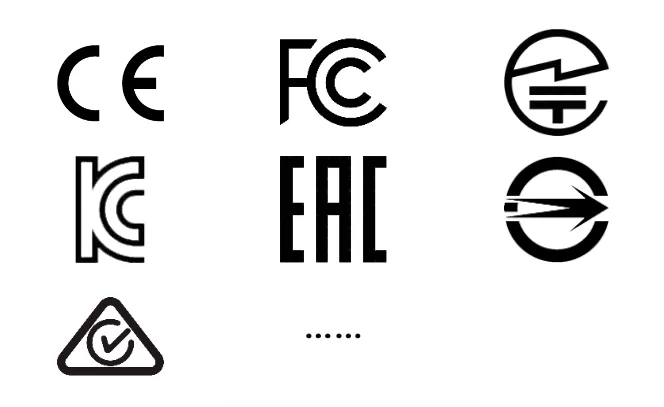
What is Qi Certification for Wireless Charging Products?
In recent years, wireless charging products have become increasingly prevalent in our lives. They are widely used in computer peripherals, personal smart portable devices, small home appliances, and car accessories. However, one certification is essential for wireless charging products: Qi certification.
Qi certification is introduced by the Wireless Power Consortium (WPC), the largest global alliance for wireless charging. It aims to standardize wireless charging for all devices and is the most mainstream certification for wireless charging.
However, the Qi certification's Initial Certification Offering (ICO) testing incurs a fee each time, which troubles many merchants.
JJRLAB in China has accumULated rich experience in applying for Qi registration, providing one-stop services to coordinate testing arrangements and assisting clients in obtaining Qi certification quickly.
Wireless Power Consortium (WPC):
Established on December 17, 2008, WPC, also known as the Wireless Power Consortium, is the world's first standard-setting organization for the wireless power industry. WPC has developed the international wireless charging standard - Qi, which is compatible with all rechargeable electronic devices, and continually promotes the widespread adoption of this standard in the market.

Products certified by the WPC alliance will be marked with the "Qi" logo.
BPP & EPP: Two Types of Qi Certification
In March 2018, WPC began implementing the new V1.2.4 Qi certification standard. All certified products are divided into two types based on their load power: BPP (Baseline Power Profile) and EPP (Extended Power Profile).
BPP (Baseline Power Profile):
Supported output power: ≤5W
EPP (Extended Power Profile):
Supported output power: 5~15W
In addition to the above two types, there is also the Samsung Fast Charging protocol, which must be implemented if the product supports it.
Compliance & Compatibility: Two Key Aspects of Qi Certification
Qi certification testing consists of two parts:
1. Compliance testing conducted at ATL laboratories (Authorized Test Labs). After passing this test, step 2 is executed.
2. Compatibility testing conducted at IOC laboratories (Interoperability Test Centers).
Notes:
- During steps 1 and 2, clients need to purchase membership and an ID (used for listing on the WPC website).
- ATL (Authorized Test Lab) is a WPC-authorized compliance testing laboratory, with multiple options available domestically.
- IOC (Interoperability Test Center) is a WPC-authorized compatibility testing laboratory.
What Does Qi Testing Involve?
Clients need to submit five sets of samples. One set is sent to an ATL laboratory for compliance testing. After passing compliance testing, one set is retained by ATL, and the remaining four sets are divided into two groups and sent to two different IOC laboratories for compatibility testing.
Compliance testing involves:
- Communication protocol timing between transmitter and receiver
- Power output capability tested by translation on XYZ axes
- Maximum power supply capability for energy transmission
- Foreign Object Detection (FOD)
Compatibility testing involves:
- Establishing communication between transmitter and receiver within three seconds when placed together
- Maintaining charging for five minutes with the product battery at 10% to 20% capacity
Notes:
- If one test case fails, the other IOC laboratory will immediately verify it. If it passes, it is consideRED a pass. However, if both test cases fail, the conclusion is a fail.
- IOC testing incurs a fee for each test.
In addition to Qi certification, what other certifications are required for wireless charging?
Wireless chargers operate on the principle of electromagnetic induction, which generates electromagnetic fields during normal operation. Therefore, they must also meet corresponding EMC requirements. Different countries/regions have different laws, but the main certifications include:

Email:hello@jjrlab.com
Write your message here and send it to us
 EMC Item – Introduction to Radiated Emission Test
EMC Item – Introduction to Radiated Emission Test
 IEC 62471 Photobiological Safety of Lamps and Lamp
IEC 62471 Photobiological Safety of Lamps and Lamp
 New European Toy Standard EN 71-1:2026
New European Toy Standard EN 71-1:2026
 EN71 Series Standards Compliance February 13, 2026
EN71 Series Standards Compliance February 13, 2026
 European Toy Safety Standard EN 71-20:2025
European Toy Safety Standard EN 71-20:2025
 EN 18031 Certification for Connected Devices on Am
EN 18031 Certification for Connected Devices on Am
 Compliance Guide for Portable Batteries on Amazon
Compliance Guide for Portable Batteries on Amazon
 2026 EU SVHC Candidate List (253 Substances)
2026 EU SVHC Candidate List (253 Substances)
Leave us a message
24-hour online customer service at any time to respond, so that you worry!




